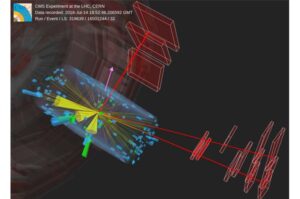
Researchers from Tokyo Metropolitan University have made a significant breakthrough in electronic materials, developing an atomically layered substance that achieves a remarkable five orders of magnitude reduction in resistivity upon oxidation. This achievement surpasses the resistivity reductions seen in similar non-layered materials by over a hundred times, marking a pivotal advancement in the field of next-generation electronics.
Innovative Material Properties
The newly created material’s ability to dramatically decrease resistivity when oxidized opens up new possibilities for its application in artificial intelligence (AI) electronics. The research team, led by Professor Kenji Watanabe, focused on the material’s atomic structure, which allows it to exhibit such extraordinary electrical properties. This finding is particularly vital as the demand for more efficient electronic components continues to rise.
Professor Watanabe stated, “Our research demonstrates that by manipulating the atomic layers of materials, we can achieve unprecedented electrical properties. This could revolutionize the way we design and use electronic devices in the future.” The implications of this research extend beyond theoretical advancements; they could lead to practical applications in various technological fields, including computing and telecommunications.
Significance for AI Development
As AI technology evolves, the need for high-performance materials has become increasingly critical. The significant reduction in resistivity offered by this new material could enhance the efficiency and speed of electronic devices, which are essential for processing large datasets common in AI applications. This could result in faster, more responsive systems that improve machine learning capabilities.
The findings were published in the journal Advanced Materials, showcasing the potential for this innovative approach to impact the electronics industry. The research not only highlights the advancements in material science but also positions Japan at the forefront of AI electronics development.
Looking ahead, the Tokyo Metropolitan University team plans to further explore the capabilities of this atomically layered material. They aim to investigate its performance in real-world applications and how it can be integrated into existing technologies.
This breakthrough reflects a growing trend in materials research, where atomic-level engineering is increasingly seen as a pathway to develop next-generation electronic components. As industries look for ways to enhance performance while reducing energy consumption, materials like the one developed by the Tokyo team could play a crucial role in shaping the future of technology.






